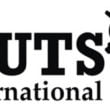The Zambia Chamber of Commerce and Industry (ZACCI) has warned that implementing Sales Tax from July 1, this year, could have devastating consequences of shrinking businesses and inducing job losses due to its cascading effect.
ZACCI president Michael Nyirenda expressed worry in an interview with News Diggers! that implementing Sales Tax would shrink businesses and lead to a loss of jobs for Zambians.
He, therefore, advised government to take necessary precautions in ensuring that the effects of the proposed Sales Tax are not more severe than the Value Added Tax (VAT) before enacting it into law.
He further explained how the Sales Tax would be just another tax paid on other taxes.
The Goods and Services Tax (GST) rate will be pegged at 16 per cent on all imported goods into Zambia, while the rate on domestic services supplied within the country will be nine per cent, according to the Sales Tax Bill, 2019.
“The proposed Bill is actually divided into two; it’s talking about the local Sales Tax and the importation. It’s true that we are predominantly an importing country. Most of our goods and services are actually imported. So, by introducing the Sales Tax…in fact, the Sales Tax is over and above the other tax. So, in short, Sales Tax is tax on tax! For example, if you are importing a vehicle, maybe US $10,000, then you pay the excise duty and the rest, now the total figure is what now you apply the 16 per cent on. So, the vehicle, which is already on high price is going to be even higher! It means the cost of running business will be high and our goods will be more expensive than they are now, they will probably be above 30 per cent more than they are now. The fact that predominantly our goods and services are from outside, it means overall, the things in the country will go up,” Nyirenda warned.
“Moreover, affordability of goods and services is already high, so if government sets out to go this route then it will be a problem. They must know that there are consequences and they may not even end up getting the total amount per year, which they are targeting to get because the reaction is that there will be shrinkage of businesses. The overall turn-over will also reduce because of costings in that it’s more expensive now than it was before. So, where you are bringing in, for example, the motor industry was importing for argument’s sake, maybe 1,000 cars in a year, with this (Sales) Tax the effects may be it might even go to half. That’s another effect, so I am looking at the overall turn-over and economic activity because trade will be affected as a result of this. But also, it’s two-fold: on the local market, the scenario will be that the nine per cent is not just one nine per cent, it could be anything up to 30 per cent or 45 per cent! For example, I haven’t personally seen the list of the exempt goods.”
He explained the effects of Sales Tax on the local market if speedily implemented on July 1, 2019.
“But let’s assume that bread was not exempt, it was treated as luxury. It means it would have to start from when the farmer grows wheat, when he gets seed; he has to pay Sales Tax on his seedlings and all the inputs that go into growing the wheat. Now, when the farmer has harvested his wheat, you have to add nine per cent when he’s selling to the miller. Then once the miller has made his flour, he has to add nine per cent when selling to the baker and when the baker wants to sell you the bread, he has to add nine per cent as well. So, that is the likely effect unless bread will be on the exempt goods. So, the multiplier effect will not be nine per cent, it will be anything up to 45 or more per cent. But also, it may also affect in terms of reducing the jobs and multiplier effects in the chain. So, you might lose jobs in the end,” he observed.
Asked whether ZACCI was opposed to the introduction of Sales Tax, Nyirenda said his organisation only wanted a tax regime that would work well for the country.
“It’s definitely going to affect businesses so there is no way that we support it! We’ve been asked to make a presentation on this to Parliament and we had a position, which we took and it’s actually on record. But government has still gone ahead to do this, but obviously, we need to discuss certain modifications. We are not opposed to raising tax, but it’s the way it’s going to be applied. So, we don’t really oppose just for the sake of opposing. But we are bringing to the attention of the authorities the effects of this so that tomorrow, we don’t just fold our hands and say: ‘we knew it was not going to work’, we would rather say now that it is not going to work because of ABCD so that in fact before the law is passed, maybe we can make those modifications. I think that’s the way to go, it’s not just the question of opposing. For us, we are saying whether you call it Sales Tax or VAT, the effect of the Tax should not be more than what the effect of VAT was. If it’s going to be any more, then it’s going to be a problem and we will be worse off than we were. In life, we are meant to grow,” said Nyirenda.













2 Responses
just stay if you dont understand things
We have useless government lets just accept.
All the advice been given is landing on deaf ears.
I always wonder how we ended up with such imbeciles.